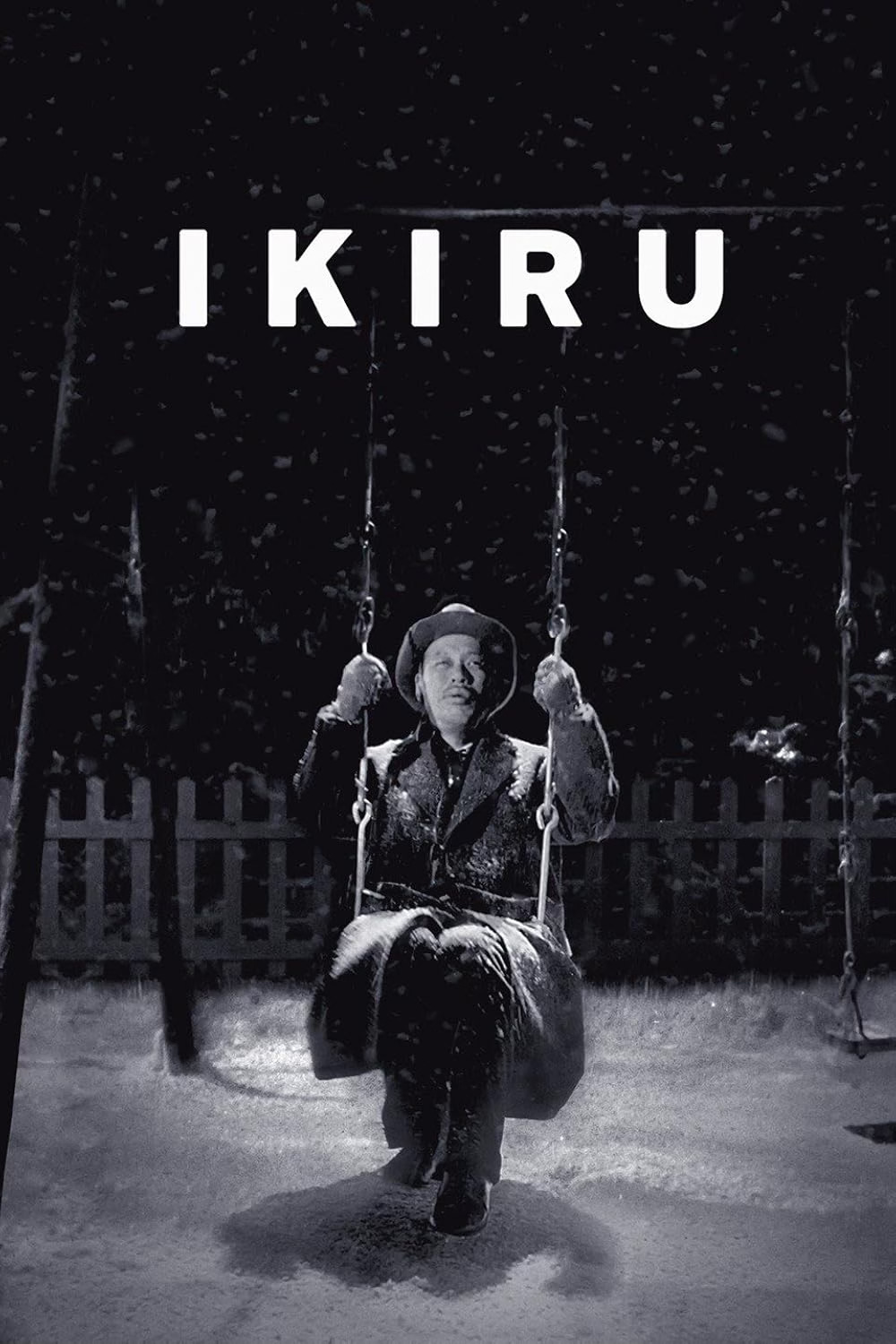There has been too much written about Kurosawa’s masterpiece Ikiru since its release in 1952. I don’t feel obliged to beat a dead horse about how incredible this film is even 72 years later, or the master that Kurosawa was, or any of the like. Much more brilliant people than me have done that for decades now, making it such a popular mainstay when people go into the Criterion Closet. I will say though, that two thesis points about this film still ring true.
Greed is a virtue
Not to be confused with the famous Wall Street quote, this point made by a bar attendee that whisks Mr. Wantanabe away on a night of debauchery is one of the most valid points. The bar patron is the first person Wantanabe tells of his cancer diagnosis and explains that he doesn’t know how to live or what, for that matter, to do with 50,000 yen1. After some back and forth, the man tells him that he needs to use this money and time for himself, seeing as that he never has. To quote, “They say that greed is a sin, but that’s outdated. Greed is a virtue. Especially for enjoying life.”
Those words cannot be truer. One thing that people forget is that the most important person in your life is yourself. Sure, we put others in front of us all of the time, but if we don’t look out for ourselves first, we cannot look after those we truly do love and care for. It’s very much in the same vein as putting your mask on before you help those around you.
Think about it: If you are not happy or content in full form - mentally, emotionally, physically - how can you ever give your love to someone else? We need to watch out for us first, because if we don’t, we will truly crumble under the weight of expectations and vulnerabilities we open ourselves to. This is not to say that you should never care about others - you absolutely should and that’s how we make the world better. But, if we cannot healthy cope on our own, by ourselves, and just be happy alone, we cannot bring further happiness into the world. This is why the “joke” at the beginning of the film about not taking PTO because your work will soon learn how disposable you actually are, is an important marker. Take time for yourself, everyone always should.
Doing the right thing because your should
This second idea may seem diametrically opposed to the one I just talked about but it is just as important. The bureaucracy of Kyoto that Wantanabe works under has drained him of any sense of empathy, constantly pushing complaints around to other departments just to have them circle about and eventually get shut down. As he begins his quest in the second half of the film to get a park built, it’s because he has the revelation of all the public work he has brought to a halt. He realized that maybe with the fleeting time he has left, of which he realized he spent most of it doing nothing, that maybe he should do something worthwhile.
There's an argument to be made that Wantanabe did this to relieve his conscience after so many years, or to give his life meaning, but I choose to see that he began this venture not as penance, but because there is no time like the present. There is literally no reason to not build a park in a rundown section for a bunch of poor children, the bureaucrats at the top just do not want to - maybe to keep the status quo, maybe because they actually don’t do anything and just want the status of their positions. But seeing as how Wantanabe has finite time and nothing left to lose, he goes against traditional Japanese behaviors, as well as his own, to make sure everything gets done and this thing gets built.
He doesn’t do it for glory, or naming rights, or political power, he does it because he should. He does it because he knows in the back of his mind that he always should have directly helped these people who want the government to do their job, and has denied their requests time and time again over thirty years. Although it has arguably come too late (as most realizations do with death knocking on the door), this is what true enlightenment is. Helping others not for a warm, selfish feeling you may get, but because humanity necessitates it. We cannot survive without each other, and we must be able to help each other when we can, just because.
$138 USD in 1952 - but my math is probably wrong on that.




